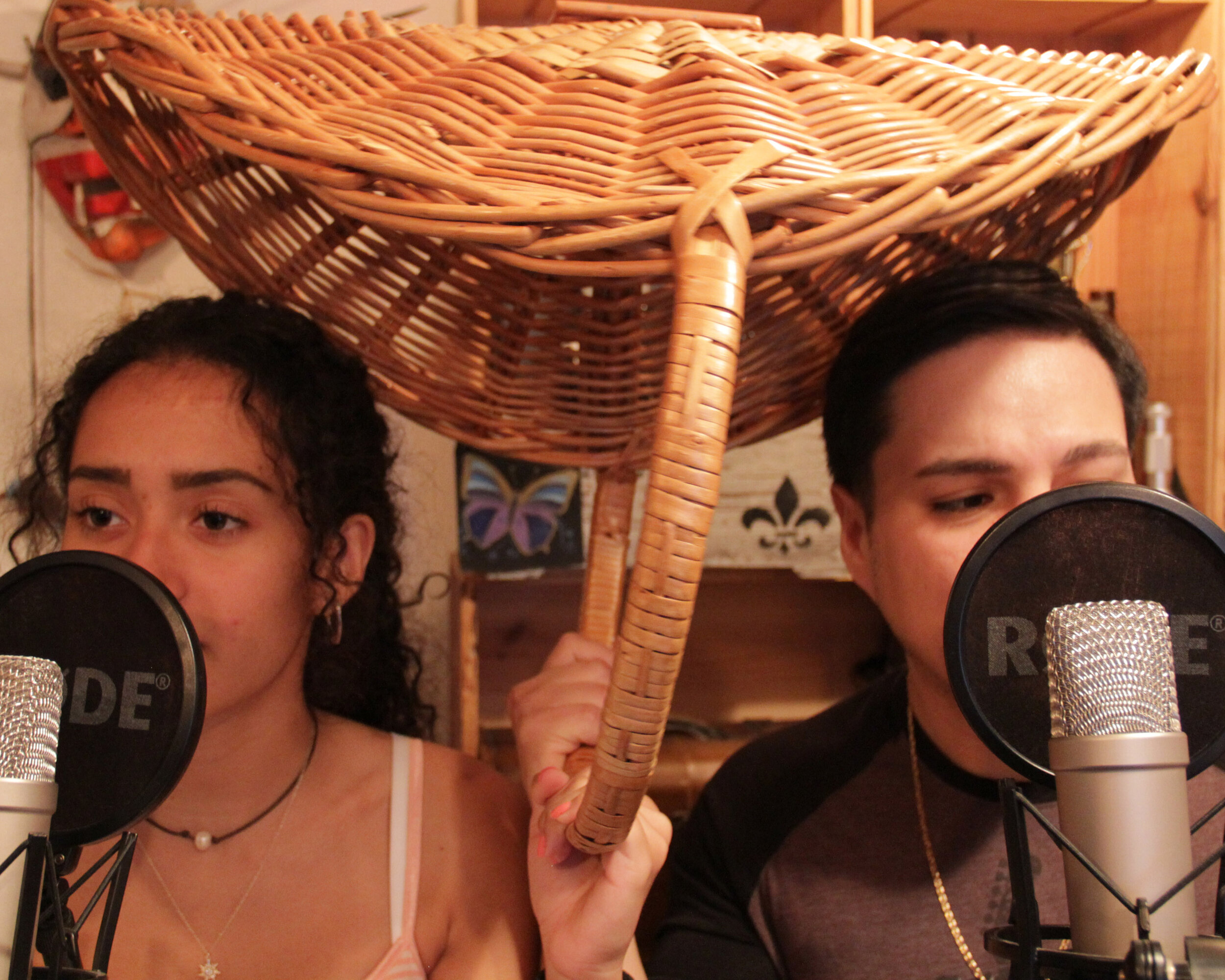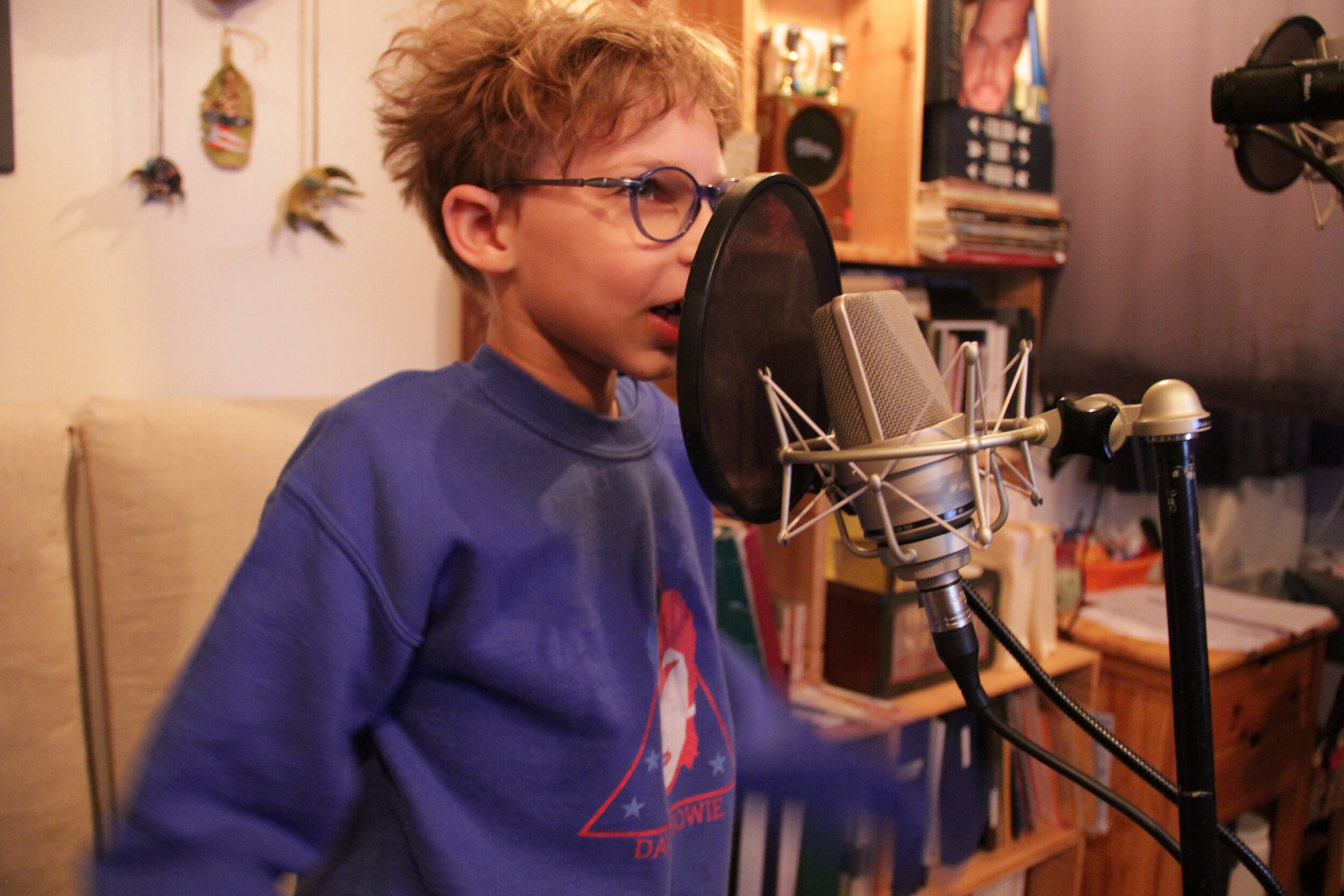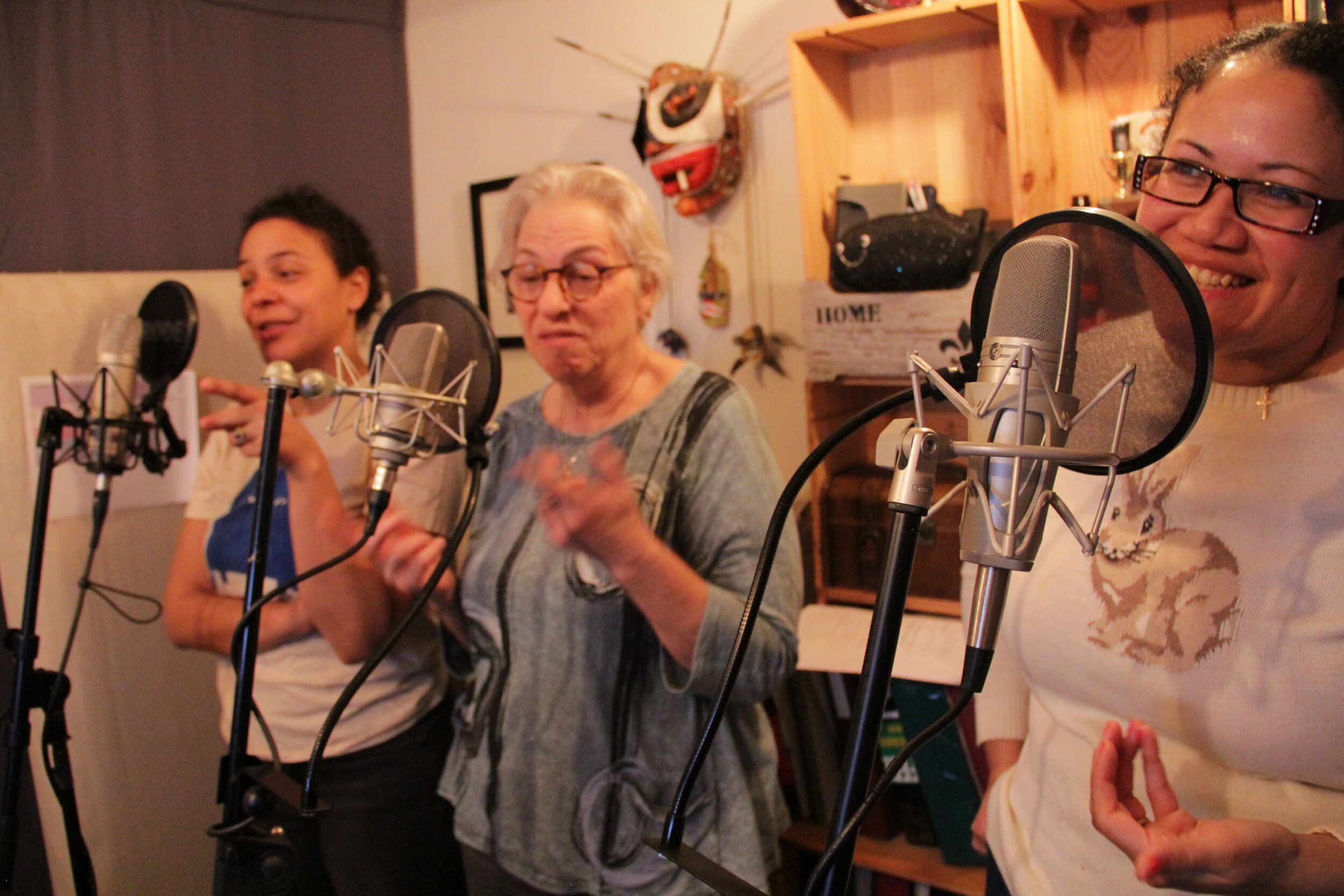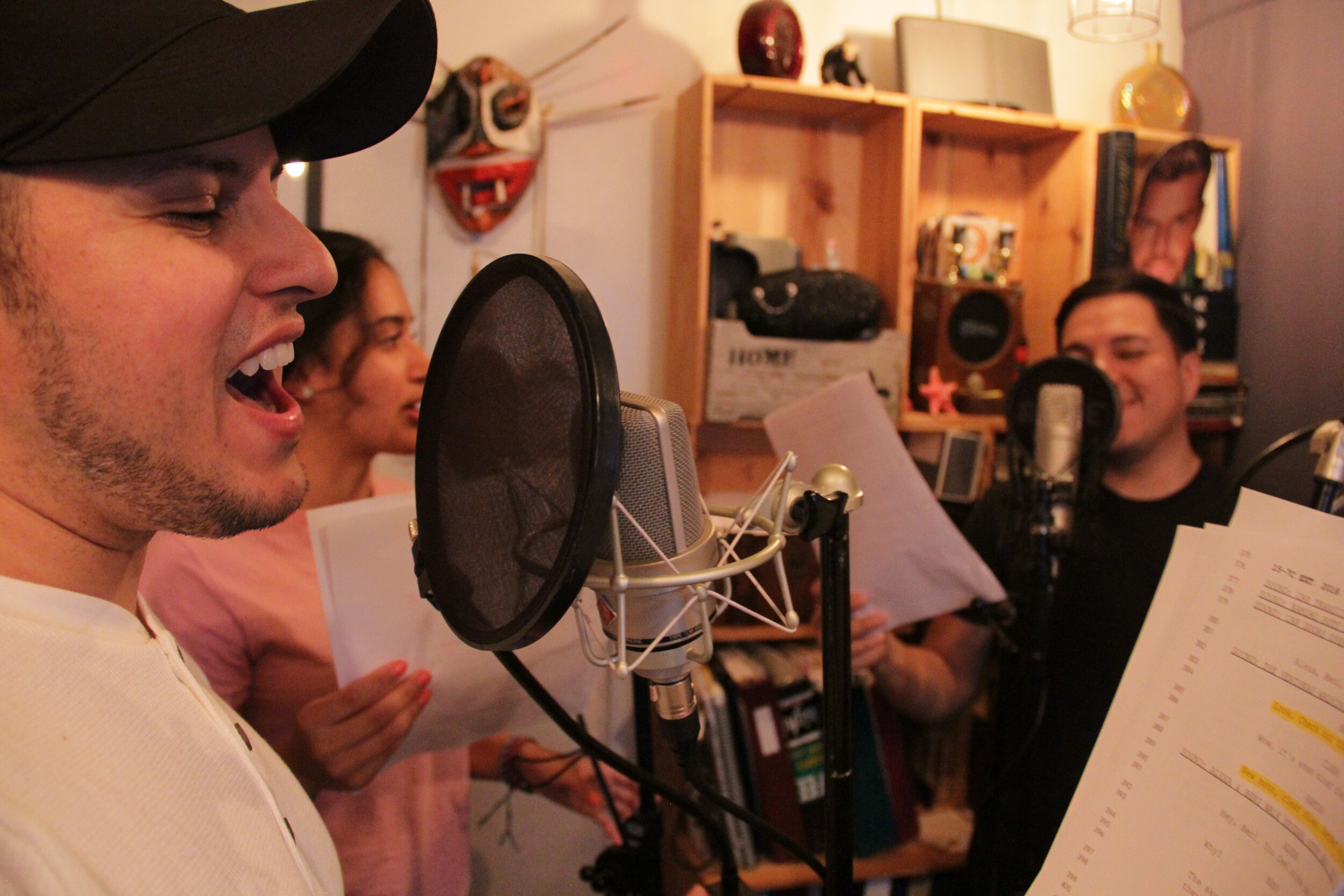'Timestorm': Exploring heritage through historical fiction
Timestorm’s audio engineer and sound designer, Michael Aquino (left), and series creator and head writer, Dania Ramos (right)
With characters, sets, and an action-packed plot, Timestorm is essentially a play for your ears.
Timestorm follows the lives of 12-year-old twins Alexa and Beni Ventura, who have been yanked into another dimension by a freak storm and meet a distant cousin who gives them a series of extraordinary missions to preserve their heritage.
Embedded in the rich storytelling, immersive sound design, and adventure are nuggets of Puerto Rican history and culture. Meet the creators of the series, Dania Ramos and Michael Aquino, to learn how they’re inspiring kids from all over to discover their own cultures:
What’s the origin story of Timestorm?
(DR) I came up with the original premise of Timestorm for a playwriting competition seeking plays that dealt with New Jersey history. I'd come across the story of Mexican aviator Emilio Carranza, who had died when his plane crashed in the Pine Barrens during an electrical storm. I outlined a script set in an alternate reality where Emilio Carranza existed in a perpetual storm and he helped twins time-travel to moments in New Jersey's past. My proposal wasn’t selected, but a couple of years later, I brought the idea to a writing workshop where the instructor asked: what if the twins traveled to moments in history from their own culture?
That led me to change the pilot character to a distant cousin of the twins and focus on Puerto Rican history. Many aspects of the project have been altered since the initial proposal, but the story has always been about two city kids from New Jersey who travel through time to witness history.
Who is Timestorm made for? What can listeners expect to hear throughout the show?
Timestorm is for pre-teens and teens ages 9–13-years-old, their parents, and teachers. We're proud that Timestorm is also enjoyed by time-travel fans of all ages. On the podcast, you'll hear the fantastical adventures of 12-year-old twins from Newark, NJ, as they travel in time to witness overlooked moments in Puerto Rican history, find objects that represent those events, and remember the people they meet along the way. You'll also hear how the Ventura twins navigate relationships in the past and present and discover who they are in both ordinary and extraordinary circumstances.
What’s your favorite story from the process of recording?
(DR) I loved the day we recorded a scene with the entire Ventura family eating dinner together. Michael set up the recording equipment in our dining room so we could have the actors sitting at our actual dining table for the session. It really felt like we were recording a family sharing a meal.
What are some challenges you faced while creating the show?
(MA) Recording parts of season two during a global pandemic is immediately what comes to mind. All previous recording sessions have taken place in our home studio. We're still figuring this out, so it's a work in progress. We've had actors get creative in their homes. Some have personal recording gear and were able to construct make-shift closet recording studios and blanket forts for remote recording sessions. We've also recently traveled to Leilany Figueroa's [who plays Alexa Ventura] home to record. I brought a mic that she set-up inside her closet. Dania and I stayed outside so we could direct and record her from a safe distance. (We've got pictures to prove it!)
Michael recording from Leilany’s lawn
Leilany’s closet recording session captured from Cocotazo Media’s Instagram story
Leilany recoding in her closet
What makes Timestorm different from other projects you’ve worked on?
(DR) This form of storytelling is larger in scope than any play or novel I've written. Once we decided that Timestorm would be an ongoing podcast with multiple seasons, I was able to plan longer story arcs in addition to individual episode storylines. It also allows for ongoing character growth, which is particularly exciting with twelve-year-old main characters.
(MA) The audience reach is what makes Timestorm unique. Theatre is my first love. Of course, there's nothing that can capture the feeling of producing, performing, directing, or playing to a live audience — the immediate response is electric. But audio drama allows our stories to be heard and shared around the world, which is an amazing opportunity. It's always exciting to see our show being heard in places like Spain, New Zealand, China, and South Africa. We've even gotten messages from parents across the country about how our story has inspired their kids to look into their culture's history.
Why do you think audio is a good vehicle to tell this story?
(MA) I can create a soundscape that lets the audience listen in as a pair of 12-year-olds navigate their everyday lives, or launch their imaginations to time-travel to Borikén (the indigenous name for Puerto Rico) in 1488. It's tough to create that second part believably on stage. Is it possible to do it on the big screen? Yes. But, you'd need a big budget, larger than most independent producers can afford. In audio storytelling, the audience's imagination is powerful — they develop vibrant, detailed images of the story that's being told. They create what Alexa and Beni look like in their minds and that means the listener can see themselves reflected in those characters.
Some episodes of the first season of Timestorm include resource guides. How were these developed, and how are they used by listeners?
(DR) We knew early on that we wanted to offer resource guides for Timestorm since the series involves history, current events, media, and literacy. I have a background in arts education. I've developed curriculum and created resource guides for several arts organizations and enrichment programs. It felt like a natural extension to create these guides for educators, parents, and listeners. There's a series guide that offers an overview of Timestorm, audio drama, and podcasts. And then there are individual episode guides that provide discussion prompts and dive deeper into certain aspects of the story, characters, past events, and historical figures.
What can listeners look forward to in season two of Timestorm?
In season 2, the Ventura twins will travel to three continents and three centuries. They'll visit the island before the arrival of the Spanish. They'll view the complexities of Puerto Rican identity in a new way. Rhythm will play a major role throughout the season. There's also a major mystery that unfolds at Taíno Comics and Games.
What makes TRAX a good network for Timestorm?
We love that TRAX is committed to delivering high-quality, inclusive content for pre-teens and teens. TRAX is listening to concerns of this age group and responding with podcasts that speak to their needs while keeping them entertained, engaged, and empowered. We can't wait to share Alexa and Beni's adventures with new fans.








